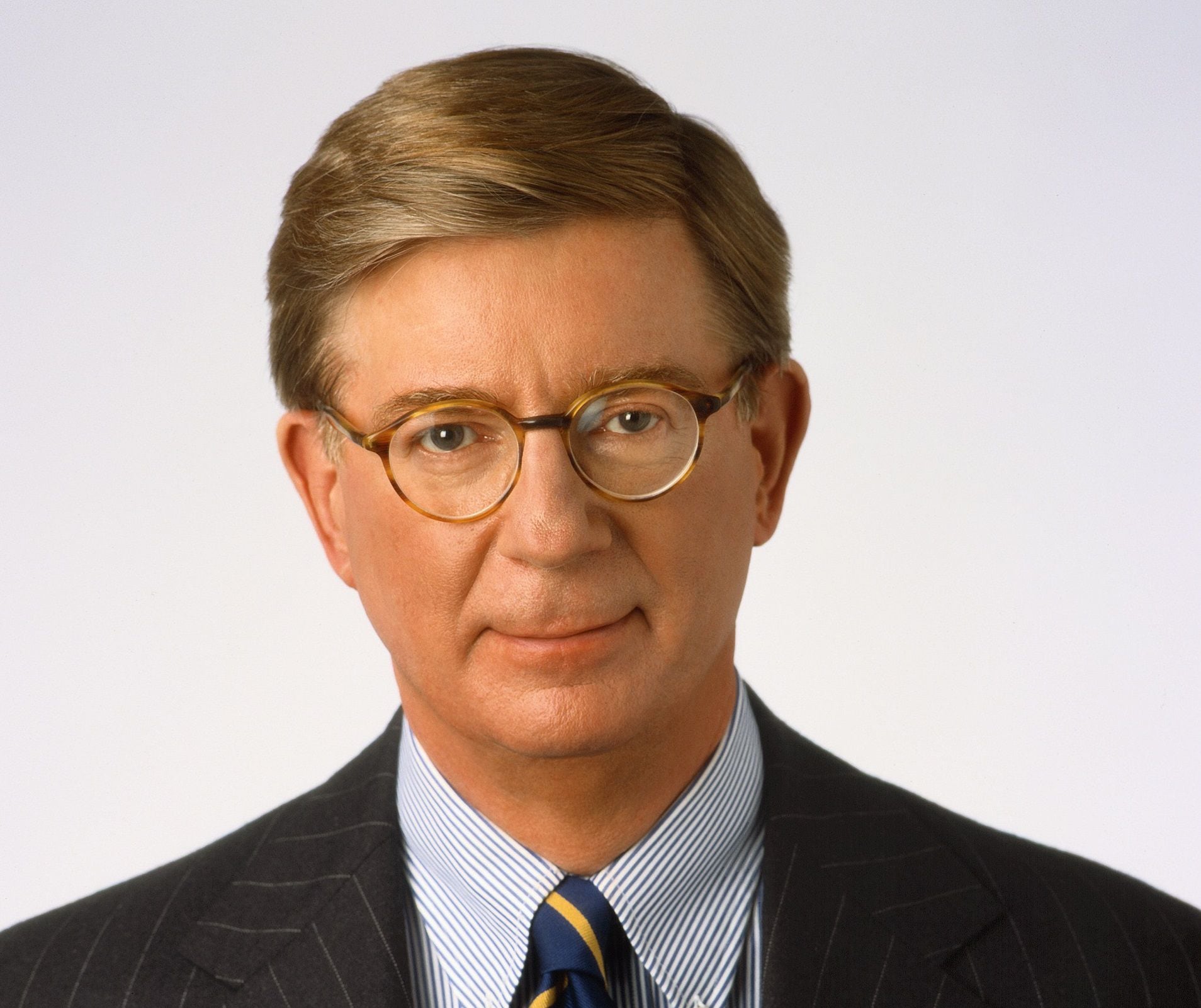George F. Will: Hong Kong’s resistance offers lessons for Taiwan
Taipei, Taiwan • What happens on Hong Kong Island does not stay there. The ongoing tsunami of discontent washes over this island, which, like Hong Kong, is navigating the choppy waters of relations with the same large and menacing mainland neighbor. This nation — which is such psychologically, if not in diplomatic nomenclature — has a presidential election in January that seems certain to be influenced by alarm about Hong Kong’s current unhappy experience with the legalistic fudge of “one country, two systems,” which the incumbent president, Tsai Ing-wen, Taiwan’s first female president, rejects.
Hong Kong is officially, if with increasing resentment, a “special administrative region” of the People’s Republic of China (PRC). Taiwan is, officially and with varying degrees of pugnacity, the independent — and determined to stay that way — Republic of China (ROC). This is a reality the PRC denies with fluctuating, but currently intensifying, truculence.
The increase probably derives from the PRC's decreasing economic vigor. The regime, meaning the Chinese Communist Party (CCP), has presented this non-negotiable bargain to Hong Kong's 7.5 million subjects: You will be obedient and we will make you prosperous. Now, however, prosperity is becoming attenuated, partly because of the inevitable corruption that riddles thoroughly politicized economies, where every decision is political, partly because any government-"managed" economy will be badly managed, and partly because of the trade war between the world's two largest economies.
Essentially no one here believes the PRC's economic statistics, which claim that China's growth has slowed but only to a still-brisk 6% rate. Officials here think the real rate could be 3% or even negative. And they discern an inverse relationship between the PRC's economic vigor and the regime's resort to bellicose nationalism to rally or distract the nation. So, Beijing presents Hong Kong's demonstrations against Beijing's encroachments on established liberties as an attempt to dismember China.
This year, which has featured PRC pressure to "mainlandize" Hong Kong, began for Taiwan with a Jan. 2 speech in which PRC President Xi Jinping impudently addressed his supposed "Taiwan compatriots," who feel less like such because of Hong Kong events, among other reasons. Xi said "Chinese do not fight Chinese." They do, however, kidnap and torture them.
It is commonly but carelessly said that Xi is "president for life." Actually, although he got the two-term limit on PRC presidents removed, and although he holds other powerful offices, he still must be reelected by the small constituency of the upper reaches of the CCP. Xi seems obsessed, as the weak often are, with projecting strength. He has, however, many enemies from his anti-corruption campaign, and rising economic dissatisfaction, so he has an incentive to harp on China's "century of humiliation" — from the 1839 Opium War to Mao Zedong's 1949 victory in China's civil war.
It ended with Chiang Kai-shek’s losing forces driven to this island, then known as Formosa, a colony of Japan for the 50 years before the end of World War II. Here Chiang ruled as dictator through his political arm, the Kuomintang (KMT), until his death in 1975. Democracy began to be established in 1987, after one of the world’s longest periods of martial law. Today, the KMT’s presidential candidate, Han Kuo-yu, is a populist who — go figure — favors more Beijing-friendly policies. Terry Gou, founder of the gigantic Foxconn, one of Apple’s principal suppliers, has, for now, opted not to run, perhaps because of gigantic conflicts of interest: With more than one million employees on the mainland, Foxconn is the largest private sector employer there. He illustrates the extent to which Taiwan and the mainland are economically melded: about 30% of Taiwan’s exports go to the PRC, where per capita income is one-third that of Taiwan; roughly half a million Taiwanese work in the PRC.
Taiwan lives with a condition Hong Kong does not have: 1,500 PRC missiles pointed at it. Xi says Taiwan's unification with the PRC is "the great trend of history." Taiwan, however, represents resistance to two supposed historical inevitabilities.
During the Cold War, "Finlandization" denoted the process by which a small, civilized nation could be compelled to accommodate a large, coarse one. The fact of Taiwan refutes the theory that such accommodation is inevitable. And also refutes the theory that democracy must bring the kind of disorder that has come to Thailand and the Philippines.
People here are jauntily amused that a new film adaptation of Winnie the Pooh, along with images of the famous cartoon bear, were blocked by Xi's censors because people have noted a resemblance of the bear's face to Xi's. Some strongman.

George Will’s email address is georgewill@washpost.com.
from The Salt Lake Tribune https://ift.tt/30KaaIE




No comments